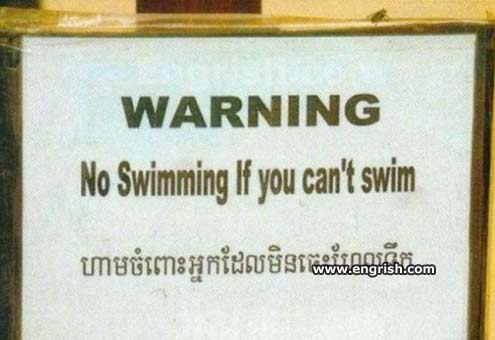The Queen's English refers to grammatically correct and coherent written expression in the English language. Plain, to the point, free of jargon and slang, etc. It does not refer to a specific accent, intonation or regional variation of the spoken language (urbandictionary.com). This notion of Queen's English (or King's, as it were),can be traced back to the sixteenth and seventeenth centuries where the idea that the monarch’s usage of the language should be a model in speech and writing. The accents of the Queen and Princess Margaret (the Queen’s sister) reflect the conservative RP whereas the younger members of the royal family such as Prince Edward, Prince Andrew and the in-laws of the family, the Duchess of York (Fergie) as well as the late Princess of Wales (Diana), all speak an RP closer to "advanced" RP than to the conservative, more traditional accent. Some features follow below:
The Queen and Older Royals might pronounce the following words as noted.
Examples:
house = hice [ ]
off = orf [ ]
tower = tar [ ]
refined = refained [ ]
Younger royals might exhibit the following types of pronunciations:
really = rairly [ ]
milk = miuk [ ]
yes = yah [ ]
St. Paul’s = St. Pauw’s [ ]
source: http://www.ic.arizona.edu/~lsp/QueensEnglish.html
Take a look at the following and see how the Queen herself has changed her pronunciation! Then I want you to post a comment on your own blog, telling which pronunciation YOU aspire to achieve. Do you think you have a choice, or is it decided for you?
QEII 1957 & QEII 2009
Enjoy!
Englishes Nv2a Spyken '10
fredag 22 oktober 2010
måndag 18 oktober 2010
Engrish!
Engrish is used to refer to English originating in East Asian countries. The term itself satirises the frequent habit of Japanese people to confuse the English phonemes "R" with "L", since the Japanese language has only one sound in place of both. The word is not used in Japan, as the actual Japanese word for the English language is eigo (wikt:英語). While the term may refer to spoken English, it is more often used to describe written English. Engrish can be found in many places, including signs, menus, and advertisements. Terms such as Japanglish, Japlish or Janglish for Japan, Konglish for Korea, Singlish for Singapore, and Chinglish for China are sometimes used as well. Try to make sense of the images below!
In being a global language, English will obiously be used in various ways by different users throughout the world, more or less in accordance with standard English. In your blogs this week I want you to write about your and other people's use of English on the Internet. Is it generally important to be correct in grammar or spelling, for instance? Is there any experimenting/inventing/playing with English, if one does not know the proper word? If you do not use English that actively yourself, you could discuss the way others use it. All your thoughts are interesting!
In being a global language, English will obiously be used in various ways by different users throughout the world, more or less in accordance with standard English. In your blogs this week I want you to write about your and other people's use of English on the Internet. Is it generally important to be correct in grammar or spelling, for instance? Is there any experimenting/inventing/playing with English, if one does not know the proper word? If you do not use English that actively yourself, you could discuss the way others use it. All your thoughts are interesting!
Pretending to swim acceptable
Sounds of Science - for your entertainment only
While in the process of composing your blog task for the week, I came across the following version of Simon & Garfunkel's "Sounds of Silence"; Sounds of Science". I do hope you are already familiar with the original (since S&G are legendary) but if not, check them out as well. Enjoy!
torsdag 7 oktober 2010
Your choices...?
You seemed extremely adamant in your choices yesterday, and quite set on which accents/Englishes you wish to explore. So, I started looking up on info. and came up with these: for comparing accents, the Speech Accent Archive, Canadian English, Australian English, South Africa. Nobody opted for Japanglish, Singlish... Ah well, it really is your choice! If you haven't decided completely, though, you might want to check this link out for inspiration, from world english.org. A nice introduction to varieties of English is given by David Crystal on which variety to teach.
We need to plan the work and decide on a date for presentations, and this is what I expect from the groups: you be the experts in your oral presentation (yes, a film is OK) so that the others learn something, give a historic background, describe the major characteristics and explore attitudes to the accent/version. I will sometimes give you an article to read or a clip to listen to, so that we can have discussions throughout the project. I am also planning to start some lessons on grammatical issues. Finally, I will ask you to blog, in order for you to share your thoughts with me. Homework for Thursday October 14th is to create a blog, write a presentation of yourself in your first post. Then, you send me a message in It's Learning where you tell me A: the name of your blog and B: your ideas for this project; what and how will you go about this? Let me know if you have any questions!
We need to plan the work and decide on a date for presentations, and this is what I expect from the groups: you be the experts in your oral presentation (yes, a film is OK) so that the others learn something, give a historic background, describe the major characteristics and explore attitudes to the accent/version. I will sometimes give you an article to read or a clip to listen to, so that we can have discussions throughout the project. I am also planning to start some lessons on grammatical issues. Finally, I will ask you to blog, in order for you to share your thoughts with me. Homework for Thursday October 14th is to create a blog, write a presentation of yourself in your first post. Then, you send me a message in It's Learning where you tell me A: the name of your blog and B: your ideas for this project; what and how will you go about this? Let me know if you have any questions!
onsdag 6 oktober 2010
Englishes
In this globalized world of ours, in a constant flux, English has a natural place as a world language. What should be acknowledged, though, is that since the end of colonial times there have been a great number of changes taking place within the language, as English is being used for natural purposes between non-native speakers. These changes have lead to a number of different Englishes and one may rightly question whether there should be a global standard for all English speakers. I find it to be an interesting question for you to pursue in our next project!
British vs. American
21st century English
British vs. American
21st century English
Prenumerera på:
Inlägg (Atom)


